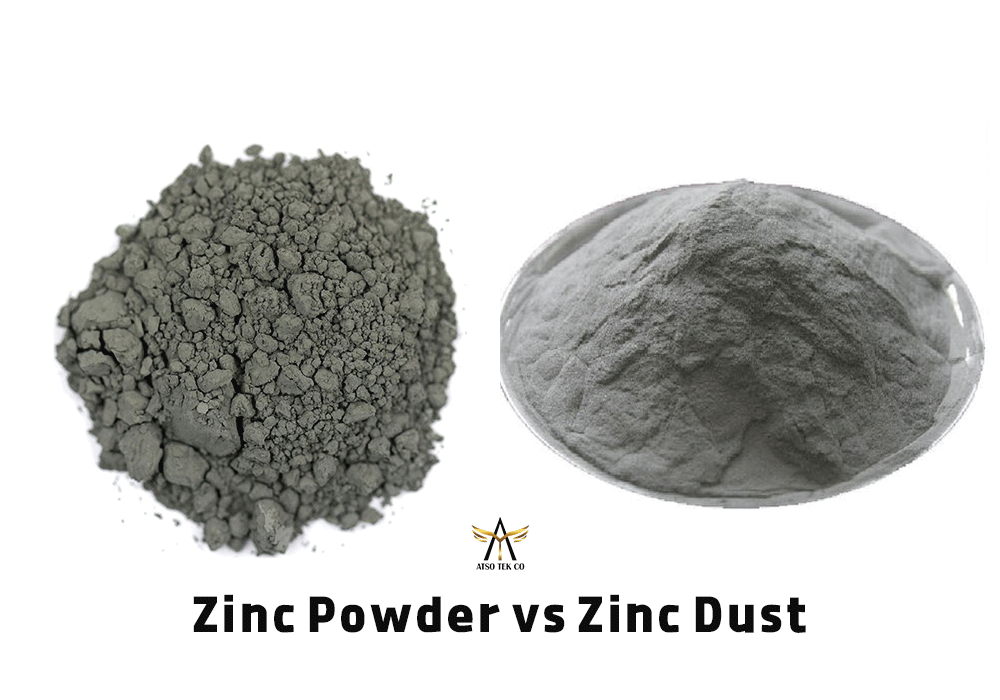Zinc powder and zinc dust are essential raw materials widely used across various industrial sectors due to their unique physical and chemical properties. Both forms of zinc have critical applications in metallurgy, battery manufacturing, paint production, agriculture, pharmaceuticals, and chemical industries. However, understanding their differences, production methods, applications, and pricing factors is crucial for industrial users and manufacturers.
What is Zinc Powder?
Zinc powder is a highly reactive form of zinc made from pure zinc metal. It appears as fine, grayish particles with either a matte or shiny surface, depending on the production method. Common manufacturing processes include atomization, distillation, and chemical reduction. Zinc powder’s fine particle size results in a high surface area, which enhances its reactivity in chemical processes, metal coating, anti-corrosion paints, and battery electrodes.
What is Zinc Dust?
Zinc dust is typically a by-product of zinc smelting, galvanizing, or other industrial processes. It has coarser particles than zinc powder and generally lower purity, often containing oxides and other impurities. Zinc dust is widely used for applications where ultra-high purity is not critical, such as in rust prevention coatings, certain chemical syntheses, and agricultural fertilizers.
Key Differences Between Zinc Powder and Zinc Dust
To better understand the unique characteristics of zinc powder and zinc dust, consider the following key differences:
| Feature | Zinc Powder | Zinc Dust |
| Particle Size | Finer, uniform particles | Coarser, irregular particles |
| Purity | High (≥ 99%) | Lower, with impurities |
| Production Method | Controlled atomization or reduction | By-product of smelting or galvanizing |
| Applications | Batteries, pharmaceuticals, fine chemical synthesis | Rust prevention, fertilizers, industrial coatings |
| Price | Generally higher due to purity | Lower, more economical |
These distinctions influence their suitability for various industrial purposes.
Industrial Applications of Zinc Powder
Zinc powder plays a vital role in numerous industries due to its superior purity and reactivity. Some of the most common applications include:
- Metallurgy: Galvanizing steel and manufacturing alloys.
- Battery Industry: Electrodes for alkaline, zinc-air, and zinc-carbon batteries.
- Paint & Coatings: Anti-corrosion primers and industrial paints.
- Agriculture: Source of zinc micronutrient in fertilizers.
- Pharmaceuticals: Production of topical creams, supplements, and anti-inflammatory formulations.
- Chemical Industry: Reducing agent in chemical synthesis and industrial processes.
These applications highlight the versatility and importance of zinc powder in modern manufacturing.
Factors Influencing Zinc Powder Pricing
The price of zinc powder depends on multiple factors including:
- Purity level
- Particle size distribution
- Production technology
- Country of origin
- Packaging and transportation costs
- Order volume
Buying from reputable suppliers offering verified quality analysis is critical to ensure product performance and safety.
Frequently Asked Questions (FAQ)
- What are the main production methods for zinc powder?
Zinc powder is typically produced through atomization, distillation, or chemical reduction processes. Each method impacts particle size, purity, and reactivity differently, making them suitable for specific industrial applications.
- How do zinc powder and zinc dust differ in terms of purity and usage?
Zinc powder generally has higher purity (above 99%) and finer particles, making it suitable for sensitive applications like pharmaceuticals and batteries. Zinc dust, with lower purity and coarser particles, is used in less demanding industrial applications such as rust prevention and fertilizers.
- Why is zinc powder more expensive than zinc dust?
Due to its higher purity, controlled manufacturing process, and specialized applications, zinc powder commands a higher price compared to zinc dust, which is often a by-product with impurities.
- In which industries is zinc powder most commonly used?
Zinc powder is extensively used in metallurgy (for galvanizing), battery manufacturing, production of anti-corrosion paints, agriculture (as a zinc micronutrient), pharmaceuticals, and chemical industries.
- What should I consider when purchasing zinc powder?
When buying zinc powder, evaluate the product’s purity, particle size, production method, packaging, supplier reliability, and compatibility with your intended application to ensure optimal performance and value



